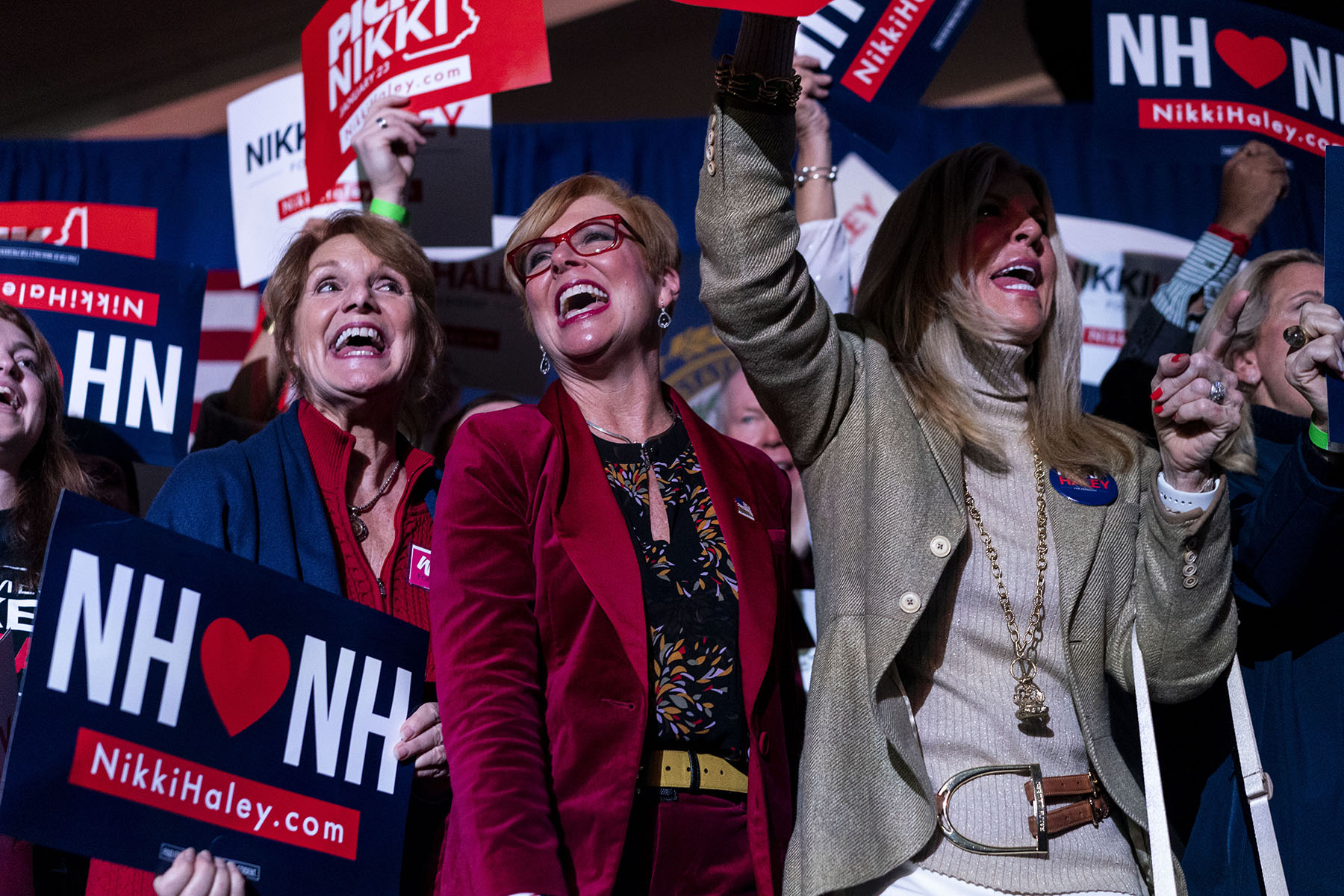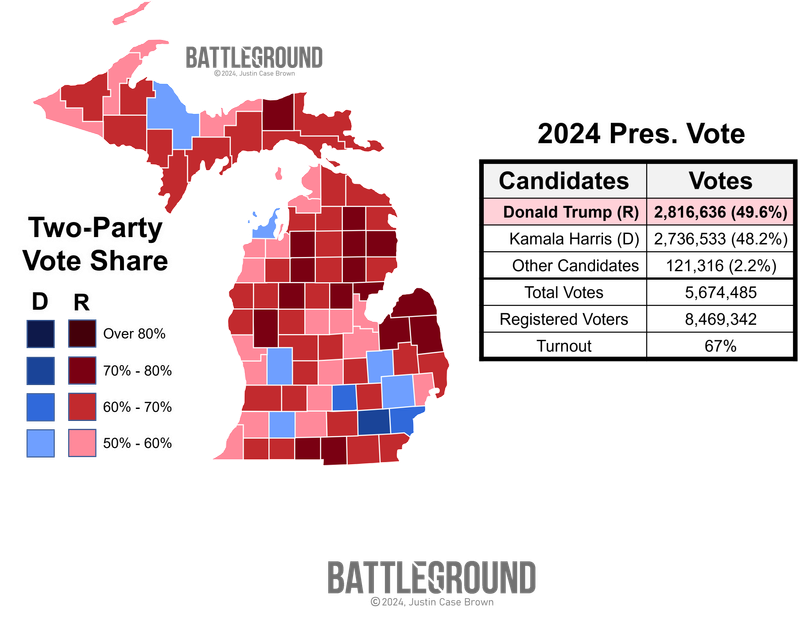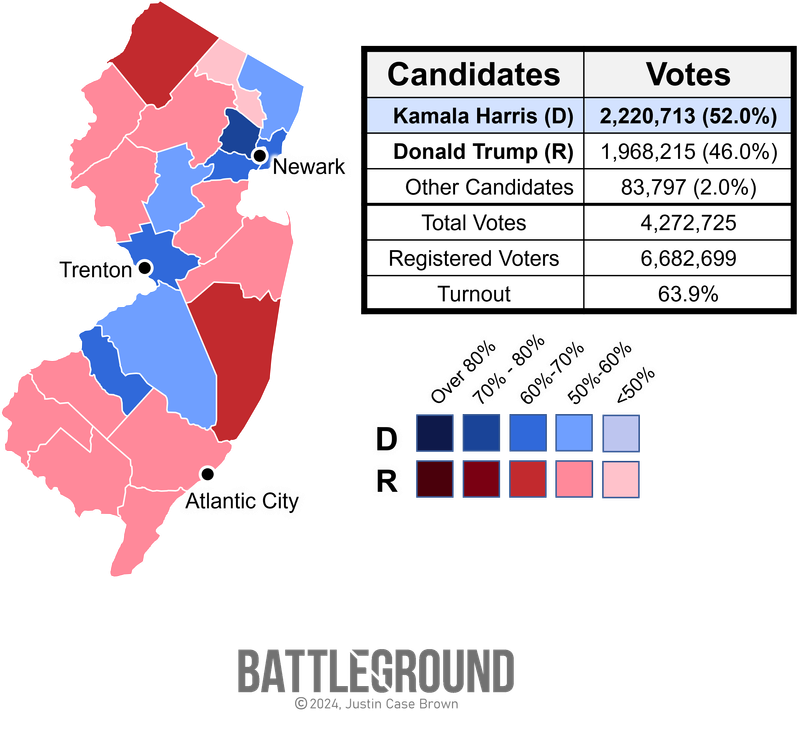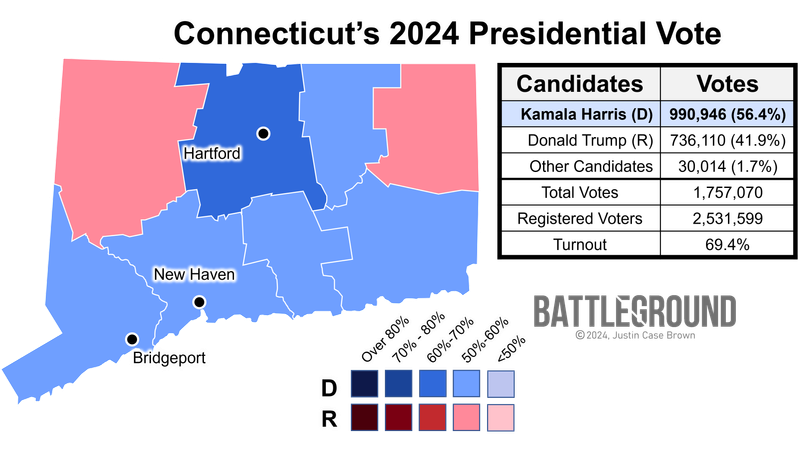Are 'Haley Voters' Really That Important In This Election?
Whether you call them "Haley voters", "Never Trumpers", or "Rockefeller Republicans", moderate conservative voters may help decide this presidential election.
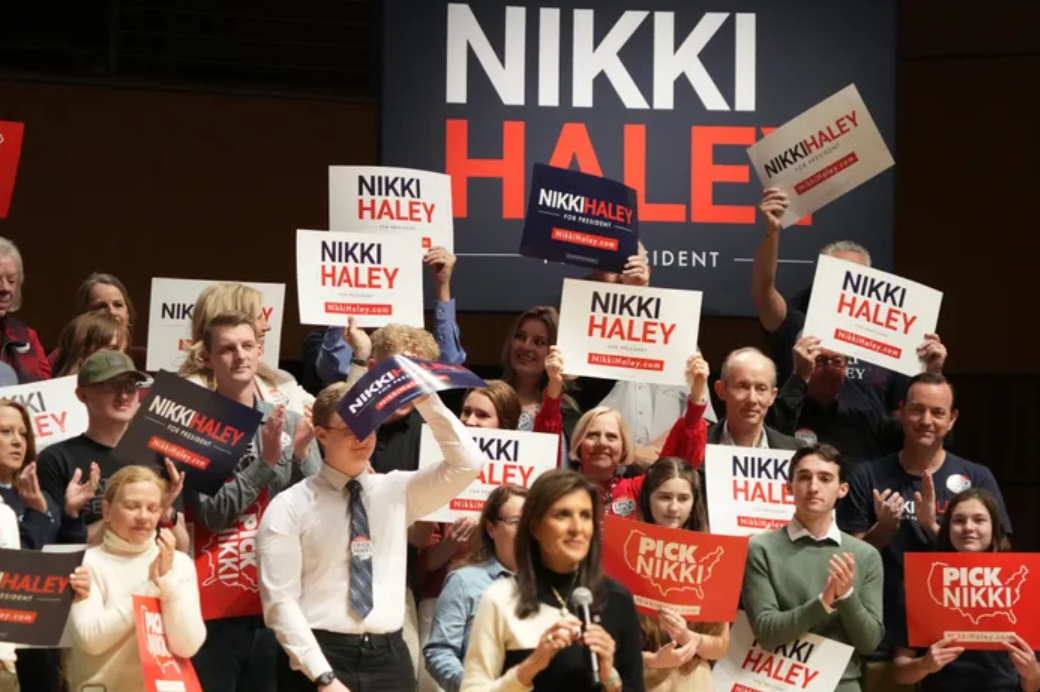
Throughout the 2024 election, political pundits have placed a focus on 'Haley voters:' voters who supported former South Carolina governor Nikki Haley in the Republican presidential primary. As Haley continued to receive substantial support in primary races after formally suspending her campaign on March 6, pundits routinely cited this as a warning sign for Trump. But this subset of moderate Republicans has been shrinking for decades and their power to sway presidential elections has been dwindling. Are they concentrated in enough swing states to be a pivotal voting bloc in this upcoming election?
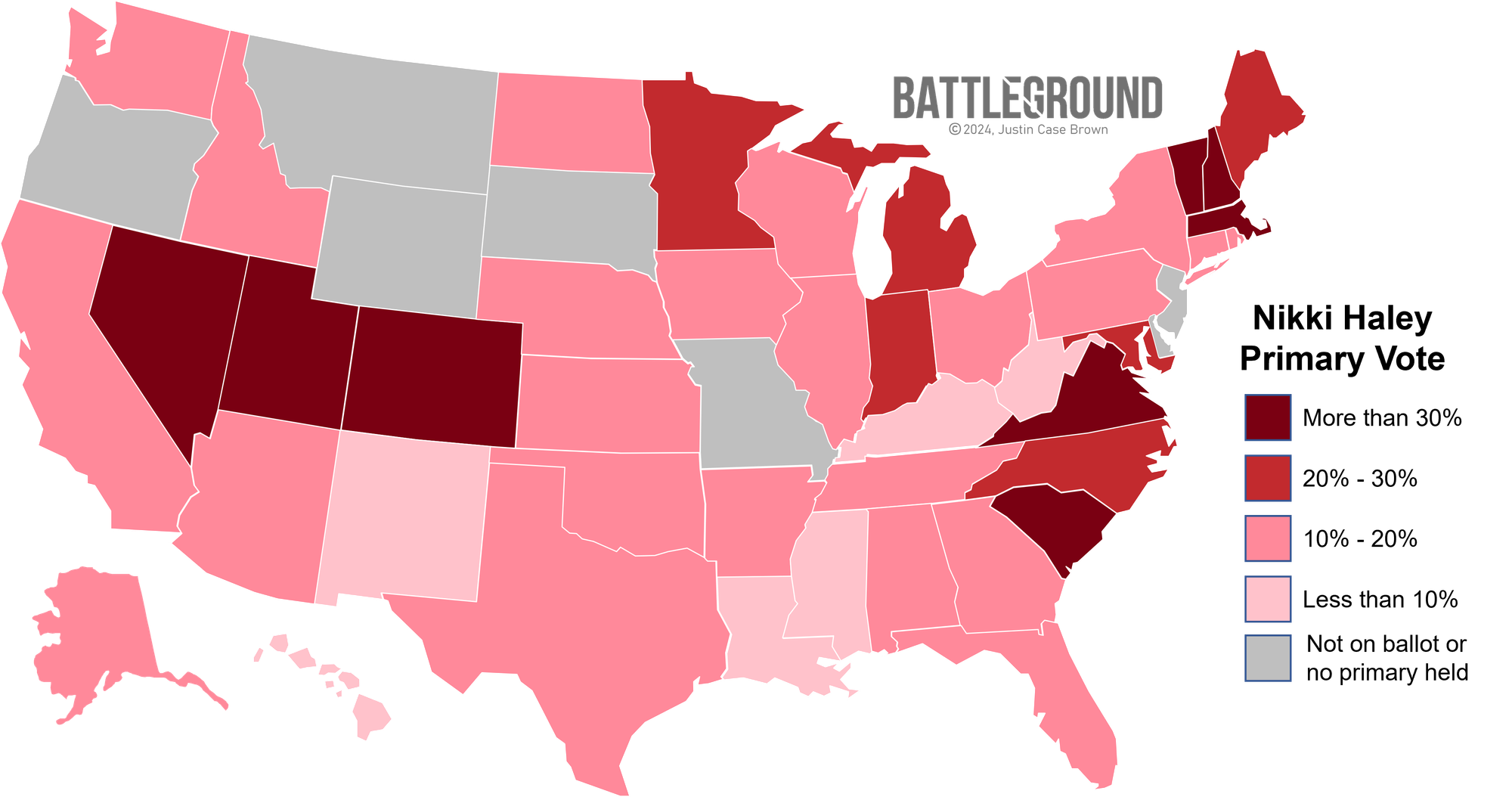
"Never Trumpers"
"Haley Voters" are simply the 2024 incarnation of the "Never Trump" movement; a small group of Republicans staunchly opposed to a Trump presidency. While their goal is commendable, they've been largely powerless on their own as they've never been a majority faction of the GOP electorate during the Trump era. The movement was at its strongest during the 2016 Republican presidential primary as Trump had yet to secure a majority of support from the party. At the 2016 Republican National Convention he only secured support from 69% of convention delegates, an incredibly low percentage of total delegates when compared to previous Republican presidential nominees. But since winning the 2016 election, Trump has successfully pushed these members out of the party by favoring those who espouse loyalty to Trump and/or share far-right political views.
An Endangered Species of Republican
The ancestral roots of "Haley Voters" and "Never Trumpers" can be traced back to the "Rockefeller Republican" of the 20th century. Named after their affinity for Nelson Rockefeller, former Governor of New York, this faction of the party was known for supporting policies that blended economic conservatism and social liberalism. They were often dubbed the "Eastern Establishment" as these voters were heavily concentrated in the metropolitan areas of the Northeast and connected to the area's elite universities. Nikki Haley built her 2024 presidential primary campaign through targeting this specific type of moderate Republican and the landscape of her primary vote helps us understand where this base resides today. As evidenced by the map above, Haley voters are not a common breed in today's America and they're primarily confined to three regions: New England, the Mid-Atlantic coast and the Mountain West.
The New England Republican crowd is most emblematic of Haley voters' commitment to intellectualism. They're the most ancestrally connected to Rockefeller Republicans by way of the Ivy League and prefer inviting educated experts to advise on policy matters. This approach to governing has been directly challenged by Trump's preference for "anti-intellectualism" and is a clear sign that they won't be shifting their support toward Trump en masse. Haley voters along the Mid-Atlantic coast are mainly loyalists that enjoyed her tenure as South Carolina's first female governor from 2011 and 2017. But even a home-field advantage couldn't help her beat Trump in the state's Republican presidential primary this year, proving that moderate Republicans aren't large enough in number to tip the scales in either direction in these states.
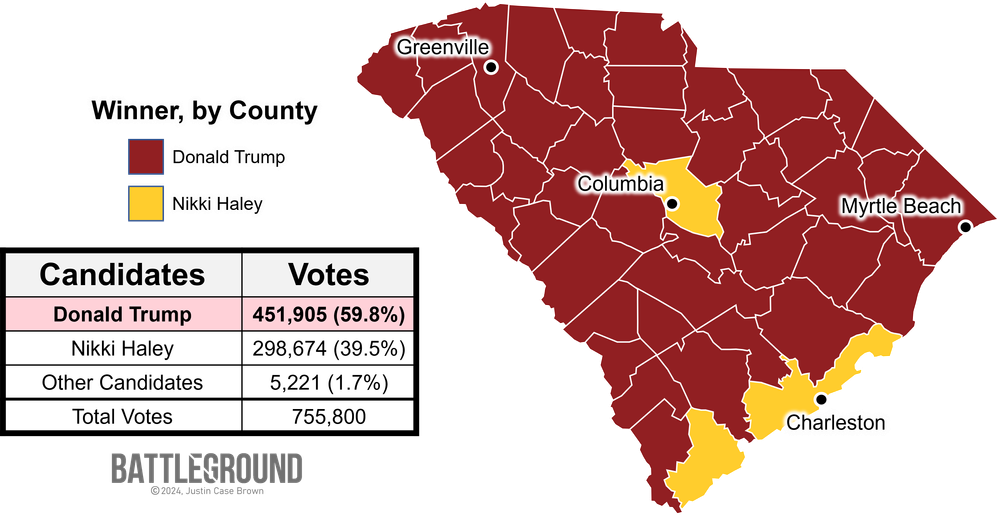
Last but not least, there's the cohort that is most likely to be a pivotal voting bloc in November: Haley voters in the Mountain West. Conservatives in the Mountain West have successfully resisted Trump's incursion on the Republican party primarily due to their commitment to small government. This stands at odds with conservatives across the south who have turned away from a small government ethos thanks to their obsession with using political power to fight the so-called "culture war." Legislation mandating the 10 commandments in classrooms or outlawing gender-affirming care are not as common nor as popular in the Mountain West as many conservatives in states like Colorado, Nevada and Utah dislike the intrusion of government into their everyday lives. Even amongst religious voters in the region, specifically Mormons, Trump has continued to struggle in finding a consistent base of support due to the mismatch between Trumpism and the region's cultural norms.
...But Haley Endorsed Trump
"I'll start by making one thing perfectly clear: Donald Trump has my strong endorsement."
- Nikki Haley at the 2024 Republican National Convention
For much of the presidential primary, Democrats were holding their breath and crossing their fingers that Nikki Haley would hold firm on her anti-Trump stance and encourage her voters to support Democrats instead in the general election. NOPE. While she remained silent on her support for Trump for several months after dropping out in March, she threw her weight behind Trump at the Republican National Convention and encouraged her voters to do the same. But it's unclear if her voters will follow their preferred candidate or consider other options.
It's likely that her loyalists in the Mid-Atlantic may hold their noses and cast votes for Trump as these voters are somewhat aligned with other Southern conservatives ideologically. Meanwhile, her voters in New England are expected to only have sway over New Hampshire's paltry 4 electoral votes as most other states in the region have reliably voted for Democratic presidential candidates for decades. Haley voters in Nevada are best positioned to be a decisive voting bloc as the state has been a 'toss-up' in recent presidential elections, decided by barely 34,000 votes in 2020.
As a Nevada resident myself, I've been proud of how common it is to see resistance towards Trump from conservative voters who may like some of his policies but hold disdain toward his style of governance. As mentioned above, Nevada conservatives are often reluctant to embrace far-right government mandates due to a pervasive "live and let live" Western ethos where people dislike directing others' lives as much as they dislike when others direct theirs. Ultimately, whoever Nevadans pick for president will be determined not by Trump's popularity but instead the degree of ambivalence toward Democrats. The replacement of Biden with Vice President Kamala Harris may bring the last-minute excitement needed to help Democrats hold on to Nevada (and quite possibly the presidency.) But to produce such a win, Democrats will likely have to lean on a couple of Haley voters to crossover and support their candidate.
Leftover Links
